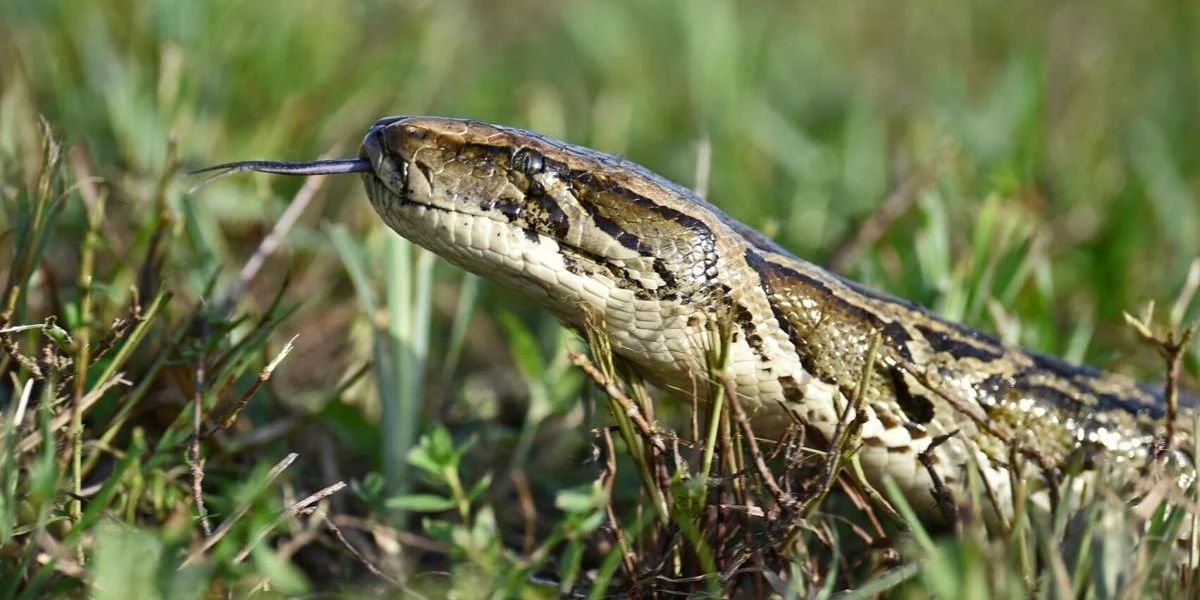Florida has marked a major milestone in its battle against invasive species, with more than 20 tons of Burmese pythons removed from Southwest Florida by one conservation group alone.
The Conservancy of Southwest Florida announced a record-breaking season, removing 6,300 pounds of pythons between November and April—the species’ peak breeding period. Since 2013, the organization has removed more than 40,000 pounds, or 20 tons, of these invasive predators from a 200-square-mile area stretching from Naples through the Western Everglades.
“We have been on the front line of the invasive python battle for more than a decade,” said Ian Bartoszek, Science Project Manager and wildlife biologist with the Conservancy. “Through dedicated research, we’ve developed science-based methods to track this apex predator more effectively and mitigate its damage to our native wildlife population.”
Burmese pythons, native to Southeast Asia, are considered one of Florida’s most destructive invasive species. Capable of eating over 85 different species—including deer, bobcats, alligators, birds, and small mammals—the snakes have caused significant declines in native wildlife populations across South Florida.
The Conservancy’s team has also captured record-breaking specimens, including the largest female python ever documented in Florida, measuring 18 feet long and weighing 215 pounds, and the largest recorded male at 16 feet long and 140 pounds.
Once limited to Everglades National Park, the python population has expanded across South Florida, with their habitat now stretching south of Lake Okeechobee to Key Largo and west to Collier County, according to the Florida Fish and Wildlife Conservation Commission (FWC).
In addition to removing adult snakes, the Conservancy has prevented an estimated 20,000 python eggs from hatching since 2013. A single female can lay up to 100 eggs at a time, contributing to the species’ rapid spread.
Florida Governor Ron DeSantis and state lawmakers have allocated significant funding toward Everglades restoration and python eradication efforts. Public involvement is also encouraged through initiatives like the Florida Python Challenge, which takes place July 11-20 this year and offers year-round opportunities to report or remove the invasive snakes.









